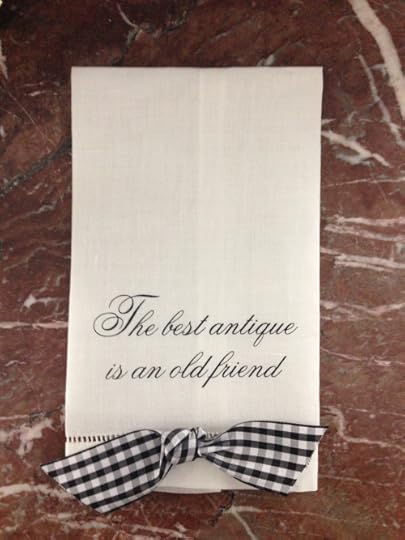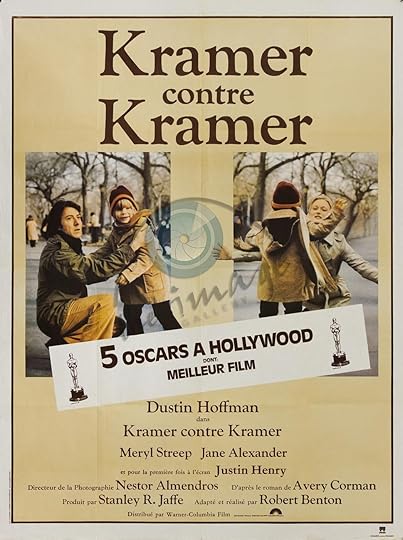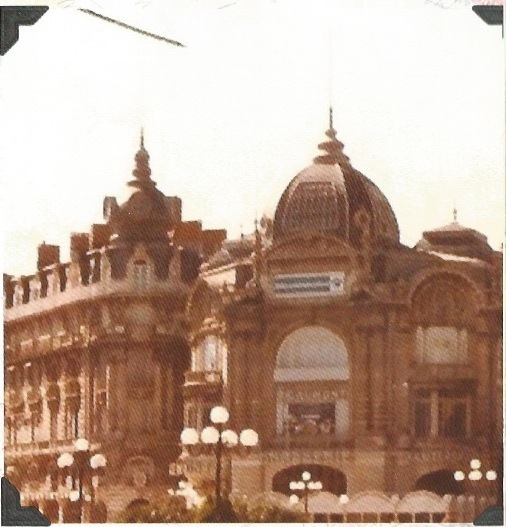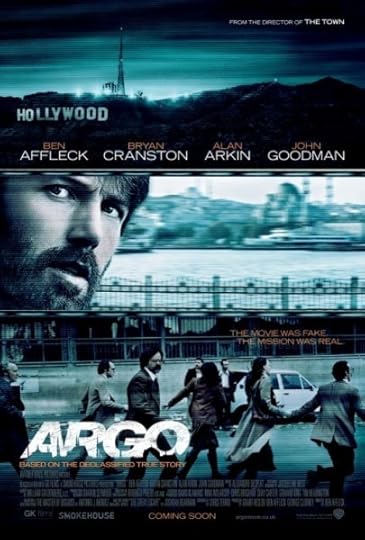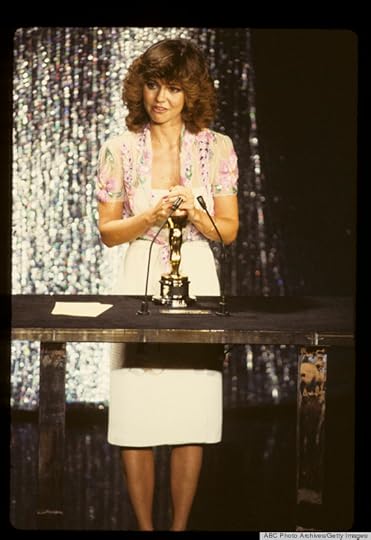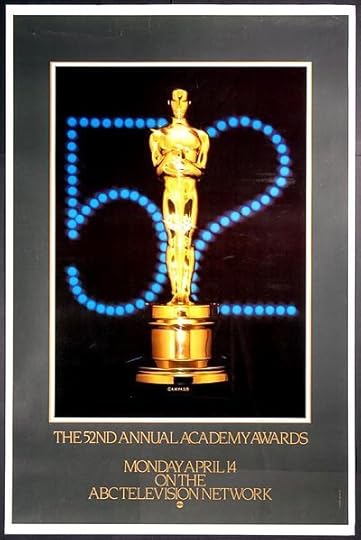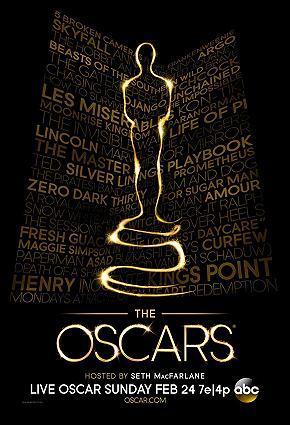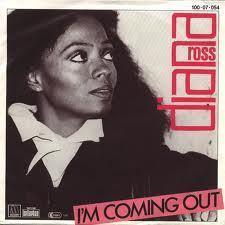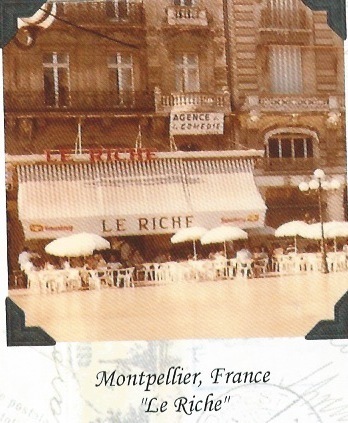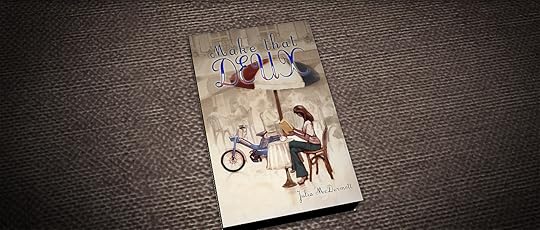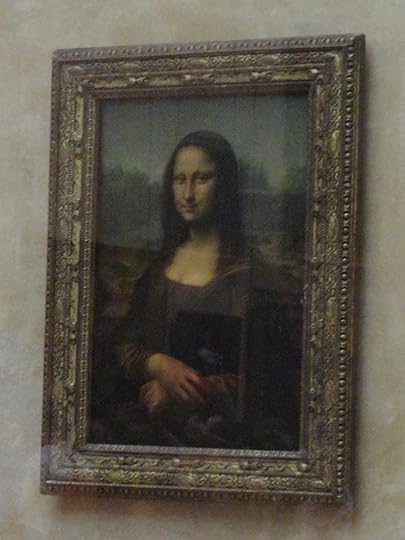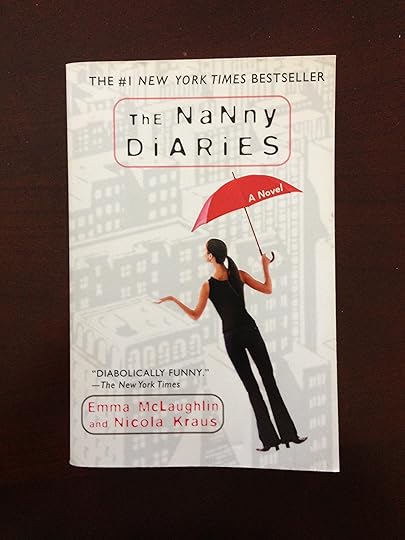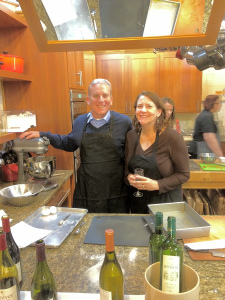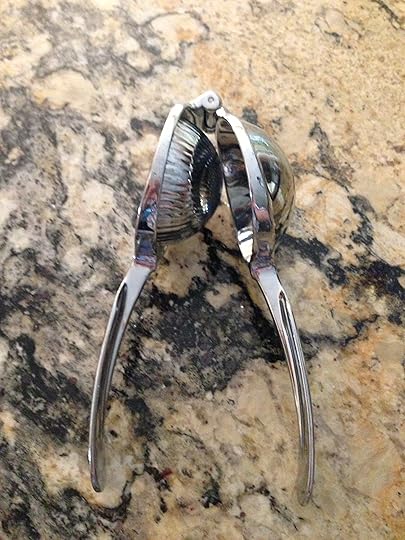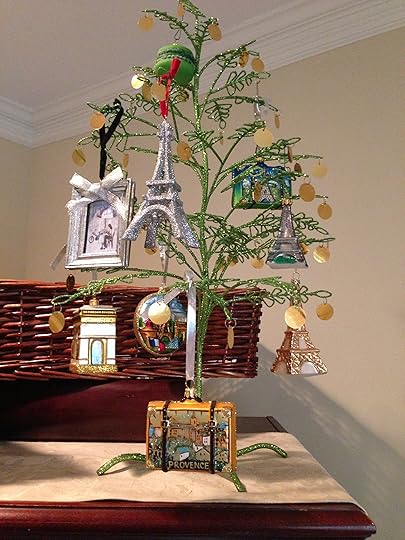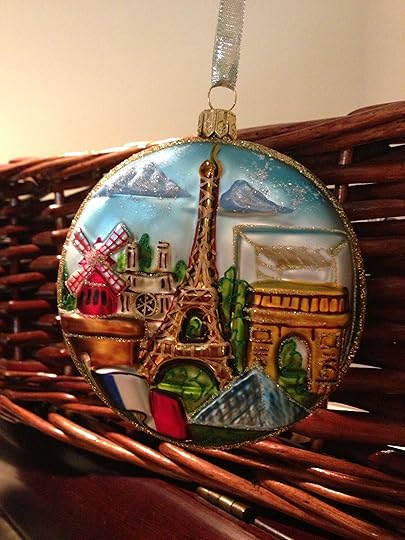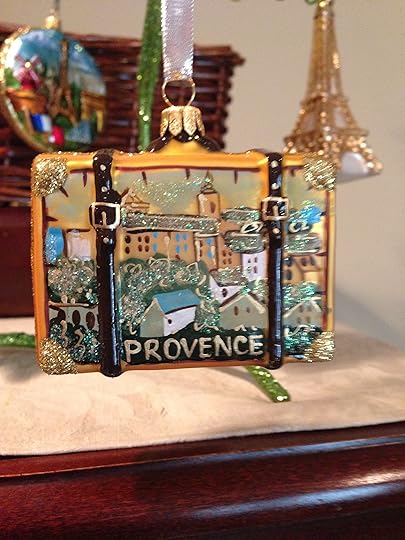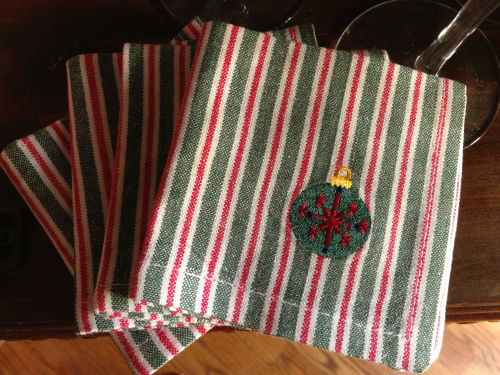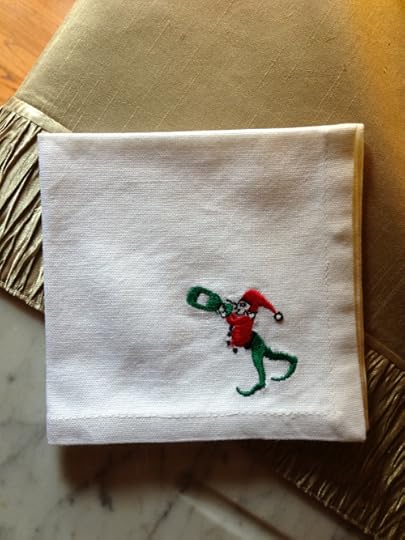Julia McDermott's Blog, page 25
March 4, 2013
Les amis de longue date: old friends, and 5 reasons why I love them
Like many people, I enjoy making new friends. But I love keeping (and seeing) those that I’ve known for a long, long time.*
Nurturing friendships takes time and effort on both sides. Sometimes, despite our intentions, it’s just not possible à continuer. For different reasons, we move on….and not always because we want to.
We relocate to a different community, city or state. We develop new interests that some of our (old) friends don’t share – so we necessarily spend less time with them. We start new jobs, have more (or different) commitments. And maybe sometimes we move on because we realize that we weren’t that close to begin with.
In my novel MAKE THAT DEUX, three young girls become friends. When their experience as roommates in France is over, they’re sad about it – they don’t want to move on. (A sequel is planned…)
In earlier times, it was difficult to stay connected with friends when I moved somewhere new and started a new chapter in life. Phone calls were expensive, and letters took more time and effort than the short messages we send now. Traveling to visit each other wasn’t easy, even for weddings; on the other hand, they were cheaper easier to attend then than most “destination” mariages of today. But everyone (or at least, I) seemed to have a lot less money back then. So we did what we could.
Happily, I never lost touch with certain old friends. I did with some others, but in recent years, it’s been wonderful to reconnect. Sometimes we’ve discovered that we have more in common now than we did before: we share new (or old) interests, or we just have more time to spend with each other.
Which leads me to the reasons why j’aime les amis de longue date:
1. They “knew me when” – back before either of us had much experience with life and love, and were filled with hopes about the future. We went through some thing(s) together, or at the same time. Somehow that “me” and that “them” haven’t changed all that much, despite our separate joys, trials and sorrows.
2. They’re constant. They’re still around, whether we were always in touch or not. The reasons why we became friends in the first place (usually NOT because our kids are the same age, or that we worked in the same office) are still the reasons why we like to get together.
3. They’re flexible, forgiving, encouraging, accepting and empathetic – all things I try to be, too. No matter what we do separately and no matter what our different interests are (or become), we understand each other. We learn from each other, laugh together and are there for each other when times are tough.
4. They don’t have an “agenda” – we’re friends because we like spending time together. We may have some shared interests (we often do) but we’re friends for more reasons than that. We’re in each other’s network of friends, but we aren’t networking.
5. They care. We’re supportive of each other, and we don’t have to know the details. We want the best for each other, and we’re troubled when the other is sad, unhappy or unwell.
One of my (old) friends often says, “Friends are the family that we choose.” Some of my dearest friends aren’t the oldest ones; I met them sometime more recently along life’s journey. But for inexplicable reasons, we may feel as if we’ve known each other for a long time. We hit it off – we just connect.
I think they’re going to become some of mes amis de longue date.
* Especially my best friend, mon mari – the family that I chose, and who chose me.


February 27, 2013
Les Oscars ’13 and ’80, et une connexion
Some people who attended the 85th Academy Awards last Sunday night also attended the 52nd Academy Awards in 1980: Dustin Hoffman, Meryl Streep, Sally Field, Jane Fonda, Steven Spielberg, and William Shatner (cette fois, sur la vidéo).
Thirty-three years ago, Johnny Carson was the host of the show, presented on Monday night, April 14, 1980. About six weeks earlier, Jenny, Lisa and Kim* go to the Cinéma Gaumont Montpellier to see the movie, just released in France, that would win 5 Oscars: Best Picture, Best Director, Best Actor, Best Supporting Actress, and Best Adapted Screenplay:
Cinéma Gaumont in 1979:
The film Argo is set in 1979-80, the same year that Jenny and her friends spend studying abroad in the south of France, and the year that moviegoers flock to theatres to see Kramer vs. Kramer. Argo won this year’s Meilleur Film award and 2 other Oscars: Best Film Editing and Best Adapted Screenplay.
I loved both movies, but for different reasons. Because my novel MAKE THAT DEUX takes place during 1979-80, the connections between the two films seem coincidental, and ironic. Kramer vs. Kramer was released in the U.S. in December 1979, not long after the American hostages (including the ones whose story is told in Argo) are seized. Both movies tell gripping stories that kept me on edge until the closing scenes. And though much is different in the world since 1980, some things haven’t changed that much, at least politically.
Back to Les Oscars. It’s changed in many ways, but not all. For example, the gowns: In 1980, Sally Field won Best Actress for her role in Norma Rae, beating Jane Fonda, Bette Midler, Jill Clayburgh and Marsha Mason. A much younger Ms. Field wore a fairly simple dress that night:
Last Sunday night, she was nominated for her role in Lincoln, a part she was perfect for and played very well, à mon avis. But my favorite nominee, Jennifer Lawrence of Silver Linings Playbook, took home the Oscar.
Sally Field at this year’s Academy Awards:
 Les robes have changed a lot over the years, and so have the hosts, but some things have stayed the same: The show is très long, and the speeches can be (too) long, too. But usually the show is entertaining and has its funny, unscripted (and weird) moments.
Les robes have changed a lot over the years, and so have the hosts, but some things have stayed the same: The show is très long, and the speeches can be (too) long, too. But usually the show is entertaining and has its funny, unscripted (and weird) moments.
Just like life. C’est la vie!
* Three characters in my novel MAKE THAT DEUX....Kramer contre Kramer was released in February 1980 in France.


February 24, 2013
My most FAQ: la question posée le plus fréquemment, and a diagram
“I’m coming out, I want the world to know, Got to let it show…”
– Diana Ross
By far, the most frequently asked question I’m asked about my novel MAKE THAT DEUX is: “Is it autobiographical?”
If you go to the FAQ (Foire aux questions) tab above, you will see at the top:
“Is MAKE THAT DEUX a true story? No, but it is based (loosely!) on a true story.”
HOW loosely? Regardez:
Not drawn to scale
I must have a bit of French ancestry*, because I like mathematical concepts; quelquefois, my mind just prefers to look at things that way. The above diagram is an example of that, kind of.
Voici l’explication:
1. What Really Happened – Yes, I really spent the year 1979 – 1980 on UNC’s Junior Year Abroad in Montpellier, France. I arrived in August and came back to “the States” the following June. I left my college boyfriend, with whom I was madly in love, behind in Chapel Hill; we kept in touch with handwritten letters and a few very expensive phone calls. I have documents (and witnesses) to prove all of this.
2. My Memories – As you can see in the diagram, some of What Really Happened is entrenched in My Memories, but not all. And some of My Memories did not really, well, happen (probably).
Pourquoi? Parce que…hmm. A., “Studies have shown” that memories tend to center around emotional events. Though I’ve always been a pretty emotional person (hopefully, in a good way), fortunately obviously, not all of my experiences during my year in France were full of drama and emotion. Some of them were though, and those were the only ones I remember.
I think.
Because, B., according to some scientists, “the very act of remembering can change our memories;” for us humans, it may even “be impossible.. to bring a memory to mind without altering it in some way.”
In other words, some of My Memories did NOT really happen (difficult for me to believe, but okay, because that fact was helpful when I wrote my fictional story),
3. MAKE THAT DEUX – Many of My Memories made it into my novel, but not 100% of them. Simply put, my story was somewhat different than Jenny’s.
And to answer that “autobiographical” question: Look closely at the diagram above and you see that, although My Memories overlap What Really Happened, and MAKE THAT DEUX overlaps My Memories, only a small portion intersects all three areas.
And I’m not “coming out” telling what that portion is…I guess we could say, see #1. above.
Or we could say, qui sait? (who knows?)
Finally, you may be wondering, “So then, what IS that part of MAKE THAT DEUX in the diagram that’s outside of My Memories (and, necessarily, What Really Happened)?”
C’est la FICTION!
“My book’s coming out, I want the world to know, Got to let it show…”
* My mother’s maiden name is Bellamy: Belle Amie?


February 22, 2013
Paris, Versailles and the Louvre
One of the most fun things about being an author is having to do research.
 A view of La Tour Eiffel from the top of the Arc de Triomphe de l’Étoile
A view of La Tour Eiffel from the top of the Arc de Triomphe de l’Étoile
My novel MAKE THAT DEUX takes place (mostly) in the south of France, where the protagonist, Jenny Miles, spends a year of college. Before the school year begins though, she visits Paris with the other American students on her Year-Abroad Program.
Last summer, my husband and I spent four days there at the end of our two-week, adventure-filled vacances in Portugal and France. Our time in Paris wasn’t long enough – we weren’t able do as many things as I wanted to do, or to see as much. Cependant (however), maybe it was long enough, because after staying in five other lovely spots (the Algarve, Nice, Aix, Montpellier and Lyon), we were getting tired of traveling. (Oui, we had built too many stops into our itinerary….but we were all alone, sans les enfants, et plein d’énergie!)
We arrived in Paris on a Monday, and we made the most of our time, though the city was crowded with tourists just before the London Olympics. We stayed in a friend’s spacious appartement, conveniently located near the Eiffel Tower and close to a Métro station.
Cathédrale Notre-Dame
We chose a few things to do, and quickly decided we’d have to plan another trip, stay longer and see more. One day, we ventured to Versailles. I had been there once before, il y a longtemps, with a group of other students on a guided tour. That day, the palace wasn’t very crowded, unlike the day we visited it last summer (though these photos don’t include tout le monde):
Versailles
We visited several art and history museums in Nice, Lyon and Paris, and my favorite was the Musée d’Orsay in Paris, parce que j’aime bien les objets d’art impressionistes…But we couldn’t leave France without a visit to the Louvre. It was the first European museum I had visited as a student, way back when, and it had changed. On ce jour-là, I walked right up to the Mona Lisa; now, malheureusement, the Louvre’s most famous work of art must stay well-protected. C’est dommage.
However, we were able to walk right up to two very famous ancient Greek statues housed in the Louvre: Venus de Milo and the Winged Victory of Samothrace, pictured below. We also saw many other less bien connu (and amazing) works of art there, much more than Jenny did in MAKE THAT DEUX.
Our trip to France wasn’t just for la recherche, but “research” was an element très amusant et agréable in our tour de France et de Paris. Mais pour un auteur, toutes les expériences de la vie sont la recherche…


February 18, 2013
Two, Dos, Deux: as easy as 1, 2, 3
Most people know how to say “two” in Spanish: “dos.” Rhymes with “close,” as in, “Close to You.”
Since my novel MAKE THAT DEUX was published, however, I’ve only heard a few who know how to say “two” in French: “deux.” Rhymes with…hmm.
I can’t think of a rhyme in English that doesn’t have a consonant ending, like “could,” “look,” or “put.” But you can pronounce“deux” – even if you took didn’t take French in high school. N’ayez pas peur (don’t be afraid): make it rhyme with one of the above, leave off that consonant sound, and you’ve got it.
The third word of my novel’s title, taken from the Cover
For a writer, choosing a title for your book is kind of like naming your baby: usually, you give it some serious thought, and it’s not always facile (easy). When you’re writing a novel and you tell others (prematurely) what you’ve decided to name your baby book, you want to hear them say, “That’s great!” not “Really?”
But once you’ve published your book, the baby’s been born and a name title given. People do in fact say “That’s great!” or even “I love it!” – no matter what they think. They don’t feel as free to tell you their opinion; if they can’t say something nice, they don’t say anything. Plus, like baby names, I believe that titles grow on people, and they come to fit the baby novel. At least, people look for reasons why names titles fit. As a writer, I love it when they find them.
But when people aren’t sure how to pronounce your book’s title (perhaps because you’ve chosen a word from another language?), there could be a problem.
I’ve heard the troisième word of my novel’s title (mis)pronounced as “do” most often. But “Make That Do” suggests something totally different than what I had in mind with “Make That Deux” when I was brainstorming for titles, back whenever-it-was.
I’ve only told a few friends the (English) one-word [working] title of my work-in-progress, a Suspense/Thriller, and so far, reception has been lukewarm. But it hasn’t bothered me because, well, I don’t know why. Perhaps it’s because this book isn’t my first; I’m not a new parent anymore, I’ve got my own way of doing things now (what works for me), and I’ve got a bit of a thicker skin.
Back to MAKE THAT DEUX: My book is set in the south of France. If One is the Loneliest Number, and Three‘s a Crowd, Two just seems, well, parfait (perfect). How does the title fit the novel? You’ll have to buy it, and read it, to find out!


February 11, 2013
“The Funny,” part deux (two)
I’ve never lived in New York, and I’ve never been a nanny – though I had a friend at UNC who was an au pair in France the summer after we both spent our junior year of college there.
But I did raise four children of my own, sans nanny or day care. So when the book THE NANNY DIARIES by Emma Mclaughlin and Nicola Kraus came out 10 years ago, I loved it, not because it was about bringing up someone else’s a child, but because it’s hilarious!
My copy of THE NANNY DIARIES
I love to read anything that makes me laugh, and I don’t know why others wouldn’t. I call it “the funny;” it’s a necessary ingredient in some types of fiction and non-fiction. (But not all: the book I’m currently writing is a Thriller, sans badinage, mais c’est une autre histoire…)
Some people have a different sense of humor than mine, and some don’t have one at all. C’est dommage (that’s a shame), à mon avis. For me, being able to laugh with others has been essential, especially during life’s trials.
In my novel MAKE THAT DEUX, Jenny (the protagonist) is 19 turning 20, just a few years younger than Nanny, the au pair in TND. Like Nanny, she’s dealing with a world very different from the one she’s known: une culture étrangère. Jenny does the best she can, under the circumstances, and (I hope) with a sense of humor. Her story is quite different from Nanny’s, but in a way, Nanny’s story influenced the way I tried to tell Jenny’s: through the eyes of a 20-something young woman who tries to keep her sense of humor while dealing with stress.
Stress isn’t easy, and we all face it now and then, or maybe, continually. Il vaut mieux en rire – it’s better to laugh about it than cry – even if we don’t feel like laughing. But I’ve found that a little levity helps, even in the worst of times.
One of my sons is a brain cancer survivor. He was diagnosed almost 3 years ago, on his 19th birthday. The next 6 months was the most difficult period in our family’s life – and we’ve been through some other serious trials. He underwent two surgeries, one them incredibly scary, and five weeks of radiation therapy. His first “clear” MRI was done that fall, two days before his grandfather, my dad, passed away peacefully at the age of 83.
My son has been cancer-free since then, and when he and I look back at that time, we don’t just remember the shock and fear that we both felt, the tears that we shed. We also recall – and still talk about – the funny things that happened in the midst of it. We thank God – and the talented doctors at Duke – that he survived, and we remember being afraid that he wouldn’t, that he might lose his young life. We weren’t looking for “the funny” then, but somehow we recognized it when we saw it: some of the things that happened made us laugh – out loud. And they still do, today.
Life is precious. Laughter is necessary. My father made me realize that when I was young. His quirky sense of humor was terrific, and he was a great joke-teller.
And he could always find “the funny.”
February 6, 2013
Why is that funny? and why le rire (laughter) est important
Impropriety is the soul of wit.
- W. Somerset Maugham
I always thought it was brevity…at least, that’s the saying in our house. But this version put a new twist on how to be witty, something I like my literary characters* to be, even if when I’m not.
W. Somerset Maugham
William Shakespeare
We all know that humor is important in life: Laughing makes us happy, and even provides health benefits. Being quick-witted is admired, though we don’t have to be quick – or really smart – to be witty, or witty, to be smart. But looking for humor in life (and finding it) seems necessary and very important. Through it, “joy happens,” I dare say.
Inside jokes aside, I like laughing about things that others laugh about, and I don’t find it fun to laugh at another’s expense. Maybe because I’m a mom, sarcasm is out, too. I prefer the positive side of humor, not the negative. I love it when something unexpected and silly – maybe just a phrase or a word – makes me laugh uncontrollably (and may even bring tears)..and I love it when others join in. Typically, after several minutes – afraid that I’m going off the deep end – one of my kids brings me back to reality (“Okay, Mom, it’s not that funny.”)
So – why is ”that” funny? Different people might have different views: some like slapstick humor, and some prefer the sophisticated kind. But there’s a lot in between. Take Carol Burnett, my favorite comedienne: watching her television show in the 1970s, I knew I would always find her funny, and some synonyms of the word “impropriety” remind me of her humor (goof, gaffe, inelegance and faux pas).
When I started dating (later), if a guy couldn’t make me laugh, I couldn’t stay interested. It wasn’t that he had to crack jokes or never be serious. But he had to not take himself (or life) too seriously – especially since I had have a tendency to do so. Eventually, I found a partner whose sense of humor was the one for me, and it’s been a vital part of our relationship: I don’t know how we could have gotten this far in life together, without it. Fortunately, he doesn’t need me to make him laugh (though I do, at times, which is a bonus), but he still likes to make me laugh.
And usually without too much impropriety…
* for example, Lisa, one of Jenny’s roommates in my new novel MAKE THAT DEUX.


February 2, 2013
7 ways Football helps (me) avoid Writer’s Block
The Super Bowl is hours away, and although my beloved Atlanta Falcons aren’t in it (despite coming pretty close, after a FANTASTIC season), I can’t wait to watch le match (and, of course, les publicités – the ads). I haven’t decided whether I want the Ravens or the 49ers to win, and I’m sure both teams have been working very hard – physically and mentally – to prepare. I was also working hard – mentally – last week, adding over 3,000 words (about 12 pages), to my work-in-progress, a Suspense novel.
Writing a novel is nothing like playing football, but there are certain parallels. For example, as a writer, there are times when you might get stuck not know what to write next wonder if you should just toss the whole thing out experience writer’s block. In football, I imagine, there are times when you aren’t sure what to do next can’t get into the end zone want to give up are so far behind, coming back seems impossible.
I started to understand love the game of football about the same time I started writing my Romance novel, MAKE THAT DEUX. Though sometimes I’ve struggled to keep going as a writer, I don’t believe in writer’s block. At least, I try my best to avoid it. I think what I’ve learned about football has helped.
But before I tell you why, a (necessary) backstory. About a week ago, my husband and I were guests at a “hands-on” dinner party: The kind where each couple has gets to help with the cooking. As the evening began, five couples sat at the table drinking wine while Professional Chef Rosemary described the recipes and the process ahead. Each couple would choose a dish to prepare, and with the help of an assistant chef (and pre-measured ingredients), create a contribution to the meal.
Mon mari, being a wonderful cook and très intelligent, listened carefully. When the signal was given, he bolted over to the dessert station, pulling me along with whispered assurances that it would be the easiest dish. He also explained that it had the extra benefit of allowing the two of us time to relax and have another glass of vin while our his creation* was in the oven.
Initially, I helped hovered stressfully around him, and soon our assistant realized it was him that she would be teaching guiding standing by to watch. As they were discussing the pros and cons of metal versus plastic lemon juicers (she liked plastic), I slipped away. Relieved of duty, I hung out closeby, talking to the other husbands as their wives stirred and sautéed.
The metal lemon juicer we have à la maison
We talked a little about football, and then one of the men told the others I was an author and had published a novel. We chatted about my book and then about the one I’m currently working on. When dinner was ready, we all sat down together to a delicious meal.
Afterward, I was asked to speak to the group for a few minutes about writing and answer some questions. One person said he would like to write a book too, and asked me how I overcome writer’s block. I said that if when I come to a point where I can’t continue a project, I work on something else: research, a blog post, marketing MAKE THAT DEUX, or just rereading (and revising) what I’ve written. Then, after a time (hopefully short), I know exactly what comes next in my novel.
Which brings me to football, and my list of ways that it helps me avoid writer’s block:
1. The objective is to advance the ball (or story). Sometimes you don’t get it very far, but if you can just keep making first downs, you’ll get there – and you don’t have to make a first down on every play. But if you give up, or if you’re three-and-out, you’ll have to punt. Not fun.
2. If you’re confused, take a time-out. Then get your head together and come back with a plan.
3. Be open to changing your strategy. Be flexible. What you thought would work may not. If something you’re doing doesn’t help advance the ball story, change it. There’s no reason to hold on to a plan that won’t work.
4. You have to work hard, and you can’t let up. You have to work at it, every day (and every play). Well, almost every day. You need some rest days.
5. Be ready to take advantage of opportunities. The unanticipated can happen. When it does, you have to be ready. If you work hard (see #4), you will be.
6. Be patient. Serendipity will find you. Sometimes you get an unexpected break. If you fumble, pick yourself up and keep trying.
7. Never lose sight of the goal. You want to succeed, no matter what is thrown at you (or away from you). Keep working, and it will happen. “Never, never, never give up!”
Go Falcons!
* “Gingerbread with Lemon Curd” – it tasted much better than it sounds!


January 23, 2013
La Musique
“J’aime bien écouter de la musique quand je travaille.” – anonyme
(I love to listen to music while I work. — anonymous)
My teenage daughter could have said this; I certainly couldn’t have. No, when I write, I need prefer uninterrupted silence. (Or, at least, few distractions.)
However, many songs came to my mind when I was writing MAKE THAT DEUX, and one of them in particular. It was recorded in the 1970s, of course, and one of its lines is the name of Part 3 in my novel. But it’s a classic, a song that you should know; if you don’t, je me sens désolée pour vous (I feel sorry for you).
It’s the answer to the Monday one-question-interview question I did with the wonderful Susan Gottfried a few days ago. Click on this link for her Featured New Book to satisfy your curiosity and find out more about MAKE THAT DEUX.
For today’s blog posts: make that deux.
C’est tout!


Traditions: My Charlie Brown Christmas tree, en français
It’s been almost a month since les fêtes de Noël, and as we settle into the new year, the holiday season — and its traditions — are now memories.
One of my holiday traditions — at least, for the last few years — is to keep something Christmas-y out and on display all year ’round. I try to select a small and unobtrusive item, like an interesting new ornament that I judge shouldn’t be hidden in a box for eleven months. So, as I was packing up our Christmas decorations a few weeks ago, I left two sets of holiday cloth cocktail napkins on view in our china cabinet. One set is decorated with red and green Christmas ball ornaments; the other features a tiny elf drinking from a large green flask.
This Noël, I celebrated the fall publication of my novel MAKE THAT DEUX with its own special Christmas tree, complete with “French” ornaments, some of which I didn’t find ’til the 26th:
It’s not really a “Charlie Brown” Christmas tree (alas, something unfamiliar to my teenager) — it’s sturdier, prettier, and fake, of course. But it reminds me of one, in a way. Inspired by growing my girls blog post of late January 2012, I decided not to pack it away, but to keep it out and decorated throughout the year.
Aren’t these lovely? Merci, Nordstrom’s after-Christmas sale!
I love Christmas and hate to see it go, and I also aime tout ce qui est français…all things French, as you can see in my “auteur bio” on amazon.fr. Like Jenny, the main character in MAKE THAT DEUX, I spent a year in the South of France, in Languedoc, a côté de Provence. Jenny doesn’t see much of Provence, but last summer, I saw a little of it with mon mari between our stays in Nice and Montpellier, and before we traveled north to Lyon and Paris on our own tour de France. Until we return for another one, someday* — or at least, until next Christmas — I’ll display my French Charlie Brown Christmas tree.
Traditions can change over time; some continue year after year, some spring up from a new idea and evolve (“From now on, we’ll…”), and some traditions come to an end, or prennent fin. When I was growing up, I looked forward to our family tradition of watching “A Charlie Brown Christmas” once a year (and it was once a year). One of the Christmas traditions my own family has adopted is watching Christmas movies and television shows together during the holidays. “A Charlie Brown Christmas” isn’t in our DVD library, but I think I will have to cherche (search) for it in about ten months. (I wonder if I can find it en français…)
Cocktail, anyone?
* Sometime in the future, we hope to visit our son in Italy, and then jaunt over to Nice and Aix-en-Provence (and stay a little longer this time…)



